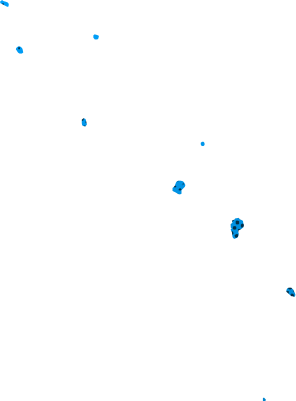
Volunteer statistics (ILO)*
Source: ILOSTATS. The data is collected by ILO from national statistical offices. As national statistics on volunteer work are produced using a variety of approaches and tools, direct and cross-country comparisons are not recommended. For more information, visit https://ilostat.ilo.org/topics/volunteer-work/
No data
Measurement work
No data
Laws, Policies, Schemes on Volunteering
Does the country have a piece of legislation on volunteering?
No data
Does the country have a national policy, scheme, plan or strategy specific to volunteering?
No data
Does the country have a sectoral and cross-sectoral policy, scheme, plan or strategy that mentions volunteering?
Yes
| Name of specific policy, strategy or plan on volunteering at the national level. | Year created | Source link | What are the relevant SDG areas/crosscutting themes of the policy, plan scheme or strategy? |
|---|---|---|---|
| National Disaster Risk Management Arrangements | 2011 | View source |
VNR Reporting
Tuvalu First Voluntary National Review (VNR) Report
View sourceReporting positive contribution of volunteering to the SDGs
Reporting on volunteering connected to matters of gender equality, women's empowerment or similar
Paragraph 1, page 25
People With Disability (PWD): The Fusi Alofa Association together with the Tuvalu Red Cross Society and volunteers assisted as necessary by the Health Department are the institutions that cater for the PWD. The group will further fall behind if they are denied development opportunities. Persons with disabilities living in the outer islands of Tuvalu feel particularly disadvantaged in regard to service provision. In particular they noted that most of the outer island schools do not cater for children with
disabilities; assistive devices are generally not available; there is a lack of accessibility for people
with mobility impairments due to poor road conditions and no ramps in public buildings. Persons with disabilities living on the outer islands have asked for equipment, tools for garden work and for housing support. On Funafuti persons with disabilities get together daily to study Braille, play, exercise and share their nourishment. They lack a place for boarding and live with families who bring them daily to a center rented by Fusi Alofa. One of the main difficulties PWDs experience to their full participation in the society is accessibility in terms of physical barriers such as transport or difficult buildings followed by a smaller number of cases of shame or stigma or communication difficulties3. A total of 466 people with disabilities (4.5 per cent of the population) were interviewed in the first study on people with disabilities in Tuvalu;
Paragraph 2, page 44
SDG 2: Zero Hunge: Tuvalu has made progress in reducing hunger and improving food security and nutrition. Donors support funding for infrastructure development in education, health, energy, agriculture, etc. The Taiwan Technical Mission dispatched by the Republic of China (Taiwan), has cooperated with the Agriculture Department since 2003. The current projects mainly focus on the production of vegetables and fruits. Demonstration farms have been set up on the main island of Tuvalu and the outer islands, and the cultivation area and crop yield have been continuously expanded. It also assists in holding vegetable and fruit markets. In addition to crop production, it has also worked with the public health department to promote a balanced diet in recent years. The R.O.C.(Taiwan) government has also sent teaching, environment, and information volunteers to assist in school teaching, environmental hygiene, and hospital information system maintenance. Many activities contribute to this such as the Live and Learned project, which focus on promoting household gardening. Live and Learn (LL) Environmental Education is an International NGO base in Melbourne, Australia. There are 12 Offices of LL with 10 in the Pacific and 2 in South East Asia. LL Tuvalu was established in April 2019. There are about 4 main thematic areas for LL which includes: climate change; women in empowerment; livelihood; and water, sanitation and hygiene.
Paragraph 3, page 60
The Faka-Laafiga Network then seeks to complement the work of Government service providers by coordinating them with the NGO members and volunteers of the network, who are being trained to be first responders, case workers, and counsellors. Additional contributions to counter domestic violence came from Pacific Women Shaping Pacific Development, which trained 20 volunteer counsellors and mentored on self-care and basic counselling skills including for gender-based violence. More sexual and reproductive health services are available in rural and remote areas with an expansion of outreach clinics by the Tuvalu Family Health Association (TuFHA) including through peer volunteers. Tuvaluans in outer islands learn about TuFHA’s services and outreach schedules through radio broadcasts.
TuFHA is also a member of the Faka-Laafiga Network and the Tuvalu National Advisory Committee for Children’s Rights, which successfully pushed for legislative amendment repealing corporal punishment in schools in 2017.
